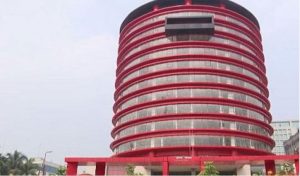Migrants’ contribution to society needs to be fully recognized, and states should encourage discussions about them to be positive, inclusive and facts-based, a group of UN human rights experts has said.
In a call to mark International Migrants’ Day that falls on December 18, the experts said that it is vital for states to recognize migrants as integral members of society and as equal rights holders.
The UN experts are Special Rapporteur on the human rights of migrants Felipe González Morales, Chair of the Committee on the Protection of the Rights of All Migrant Workers and Members of Their Families Jose S Brillantes, Chair of the Committee on the Elimination of Racial Discrimination Anastasia Crickley, Chair of the Committee on the Rights of the Child Renate Winter and Special Rapporteur on contemporary forms of racism, racial discrimination, xenophobia and related intolerance E Tendayi Achiume.
“States can play a significant role in promoting positive perceptions about migrants in the general public, by using and promoting a positive discourse, and by presenting facts and studies, including about the contribution of migrants to societies. These steps will help combat the negative populist perception of migrants,” the statement reads.
They said it is important to change the narrative and the approach by which migration is viewed.
“States must stop perpetuating the myth to stop irregular migration, and criminalizing irregular entry and stay, and move from a zero-tolerance attitude to a human rights-based approach to migration, fostering inclusiveness and integration,” reads the statement a copy of which UNB obtained from Geneva on Friday.
The experts said host societies should be able to take into account all benefits and challenges of migration in terms of economic growth, demographic changes, ethnic and cultural diversity, social inclusion, personal freedoms and respect for the rule of law.
“Migration is not a threat. It is a daily reality and an opportunity. When the human rights of all migrants, including migrant children’s and women’s rights, are respected, they are able to realize their full potential, and contribute to the development of their new societies in so many meaningful ways,” they said.
Respecting and protecting human rights for all migrants, regardless of their race, religion, colour, descent, or national and ethnic origin, plays a pivotal transformative and empowering role in this regard, the experts observed.
They said migrant women, children and men’s experiences of racial discrimination including structural racism and associated profiling, at all stages in the migration process and in their ongoing daily lives need to be acknowledged and immediately addressed.
“Urgent and long-term measures are needed to foster social and economic environments which enable the full inclusion of migrants with the local population, without discrimination on any grounds, while enabling them to preserve their distinct origin and historical experiences without fear or intimidation,” they said in the statement.
The UN experts said migration itself is a natural part of human existence. It is not a crime and it is not a problem.
“This approach to migration governance shifts emphasis away from closing borders and keeping people out, and towards creating accessible, regular, safe and affordable migration channels, and promoting and celebrating diversity,” they said.




